Ashley Tellis
Mumbai-born Ashley Tellis is one of America's top experts on South Asia. A Senior Associate with the Carnegie Endowment for International Peace, Tellis recently gave a lecture at the National Defence University's Programme on Irregular Warfare and Special Operations Studies on the grave threat posed by the Lashkar-e-Tayiba to the world.
Carnegie Endowment for International Peace (external link) has kindly permitted rediff.com to carry the transcript of his speech. This is the last of the four-part series
Part I: The menace that is Lashkar-e-Tayiba
Part II: Dangerous LeT has LARGER ambitions
Part III: Today, LeT is more than just a terrorist group
Three main conclusions can be drawn. First, the LeT remains a terrorist organisation of genuinely global reach.
Although the nature of its presence and activities vary considerably by location, the LeT has demonstrated the ability to grow roots and sustain operations in countries far removed from its primary theatre of activity in southern Asia.
It exhibits all the ideological animus, financial and material capabilities, motivation, and ruthlessness required to attack those even further afield that it believes are its enemies because of their adherence to different faiths or their residence in secular, liberal-democratic states.
These characteristics of LeT, which have been on display since the group first came into existence in the late 1980s, have made it the object of focused attention within the US intelligence community.
LeT's worldwide operations, whether they be merely facilitation and fundraising or more lethal activities such as planning, coordinating, and executing armed attacks either independently or in collusion with others, have marked LeT as a genuine threat to regional and global security.
If the outfit previously escaped the popular attention it received after the 2008 atrocities in Mumbai, it was only because its earlier attacks did not extend to Western civilians and because its preferred combat tactics made it a lesser challenge to American interests in comparison to Al Qaeda.
This, however, should not be a consolation. If left unchecked and untargeted, LeT will evolve into a truly formidable threat, given its resourcefulness, its operational span, its evolving capabilities, its relatively robust sanctuary within Pakistan, and above all, its ideology of unremitting universal jihad.
..
'India has turned out to be a terribly soft state'
Image: Indian Prime Minister Manmohan SinghSecond, India has unfortunately become the "sponge" that inadvertently protects the West. India's proximity to Pakistan has resulted in New Delhi absorbing most of the blows unleashed by those terrorist groups that treat it as a common enemy along with Israel, the United States, and the West more generally.
To the chagrin of its citizens, India has also turned out to be a terribly soft state neither able to prevent many of the terrorist acts that have confronted it over the years nor capable of retaliating effectively against either its terrorist adversaries or their state sponsors in Pakistan.
The existence of unresolved problems, such as the dispute over Jammu and Kashmir, has also provided both Pakistani institutions and their terrorist clients with the excuses necessary to bleed India to death by a thousand cuts. Still, these unsettled disputes remain only excuses.
They should be addressed by New Delhi seriously and with alacrity, but there is no assurance that even a satisfactory resolution of these problems will conclusively eliminate the threat of terrorism facing India and the West.
This is because the most vicious entities now engaged in attacks on India, like LeT, have objectives that go way beyond Kashmir itself.
They seek to destroy what is perhaps the most successful example of a thriving democracy in the non-Western world, one that has prospered despite the presence of crushing poverty, incredible diversity, and a relatively short history of self-rule.
India's existence as a secular and liberal-democratic state that protects political rights and personal freedoms -- despite all its failures and imperfections -- thus remains a threat to groups such as LeT, with their narrow, blighted, and destructive worldviews. It is also a threat to other praetorian and antidemocratic institutions such as the Pakistan Army and the ISI.
...
'India has turned out to be a terribly soft state'
Image: The Taj Hotel on fire during the 26/11 attacksIndia, accordingly, becomes an attractive target, while its mistakes, inadequacies, and missteps only exacerbate the opportunities for violence directed at its citizenry.
It would be a gross error, however, to treat the terrorism facing India as simply a problem for New Delhi alone. When viewed from the perspective of the United States, it is safe to say that LeT has long undermined US interests in the global war on terror.
It threatens US soldiers and civilians in Afghanistan and has now killed US citizens in Mumbai. Thus far it has not mounted any direct attacks on the American homeland, but that is not for want of motivation.
Given the juicier and far more vulnerable US targets in South Asia, LeT has simply found it more convenient to attack these (and US allies) in situ rather than overextend itself in reaching out to the continental United States, especially when Al Qaeda still remains focused on that task.
An LeT attack on the US homeland would also lead Washington to target the ISI and the Pakistani state directly, problems that the Pakistani military can do without at a time when groups like LeT and its regional partners are more than amply successful in advancing the Pakistan Army's aims by undermining larger US and coalition investments in Afghanistan.
Yet, the deliberate killing of American citizens in Mumbai crossed a new line. In a very real sense, the carnage there was fundamentally a species of global terrorism not merely because the assailants happened to believe in an obscurantist brand of Islam but, more importantly, because killing Indians turned out to be interchangeable with killing citizens of some fifteen different nationalities for no apparent reason whatsoever.
If the United States fails to recognise that the struggle against terrorism must be indivisible because Indian security is as important to New Delhi as American security is to Washington, future Indian governments could choose to respond to the problems posed by Pakistani groups such as LeT in ways that may undermine regional security and make the US effort to transform Pakistan more difficult than it already is.
...
'India has turned out to be a terribly soft state'
Third, although the most vicious terrorist groups in southern Asia, such as Al Qaeda, LeT, the Pakistani Taliban, Jaish-e-Mohammad, and the Harkat-ul-Mujahideen, are driven largely by a radical Islamist agenda rather than by any negotiable grievances, they still remain highly adaptable with respect to the lethal tactics chosen to achieve their goals.
This reality makes such terrorists formidable adversaries. A successful anti-terrorism policy must be able to cope with both their obdurate aims and their changing techniques.
The only reasonable objective for the United States in this context must be the permanent evisceration of these groups -- especially Al Qaeda and the LeT, which threaten American interests directly -- with Pakistani cooperation if possible, but without it if necessary.
This is particularly so because the unacceptable nature of their ambitions alone should rule out any consideration of policies centred on conciliation or compromise. It should also make Washington suspicious of any theory of terrorism that justifies its precipitation by so-called "root causes," especially in South Asia -- and saying so does not in any way obviate the need to resolve existing intra- and inter-state disputes so long as the resolutions are pursued through peaceful means.
Where the forms of violence are concerned, the evidence suggests that the uncompromising ideological motivations that often drive terrorism on the Indian subcontinent coexist quite comfortably with the presence of effective instrumental rationality, even if this is only oriented toward sinister purposes.
As the attacks in Mumbai demonstrated, even ideologically charged terrorist groups such as LeT are capable of meticulous planning and strategic adaptability. Terrorists learn and change their tactics to outwit their state opponents.
For instance, because Indian intelligence agencies successfully broke up several terrorist modules in recent years -- groups that intended to transport explosives and conduct bombings by land -- in Mumbai, LeT resorted to an unexpected course of action that involved arrival by sea and the use of trained and motivated attackers with relatively unsophisticated weapons to inflict a great deal of damage.
...
'India has turned out to be a terribly soft state'
Image: Pakistan Prime Minister Yousaf Gilani with US President Barack ObamaPhotographs: Reuters
There is little doubt that other terrorists will learn from Mumbai and could attempt to emulate the LeT's actions. If the LeT itself seeks to attack the US homeland, it could well choose to replicate its experience in Mumbai by using sleepers possibly already resident in the country.
Whether it does so or not, the important point is that the successes of US intelligence and law enforcement agencies in neutralising more complex kinds of attacks could well push various ideologically hostile terrorist groups to seek simpler solutions, using capabilities at hand or readily available, to attack US citizens in unanticipated ways abroad or at home.
LeT is one such group that certainly possesses the motivation to conduct such attacks on American soil if the opportunities arise and if the cost-benefit calculus shifts in favour of such assaults.
In light of these three conclusions, there are some unsettling trends that foreshadow a shift away from LeT's relatively low profile post-Mumbai.
While the United States has never been able to convince the Pakistan Army to extirpate LeT from the fertile soil of the Pakistani state, the benefits of Washington's relationship with Islamabad -- and the dangers to Pakistan arising from catastrophic terrorist attacks against India or the United States -- have nevertheless helped to persuade the Pakistan Army to restrain LeT's more extreme tendencies.
In particular, LeT's ideological imperative to take its war to Western homelands has not yet been consummated, in part because Pakistan fears the devastating fallout that would follow a total rupture in US-Pakistani relations.
Over the last year, however, the US-Pakistan relationship has withered, and with it, so has the value of keeping on good terms with the United States. While the Pakistan Army as a whole, and its current leadership in particular, still firmly opposes any LeT attack on the United States, any unraveling of the US-Pakistan relationship that intensifies the adversarial sentiments on both sides would only strengthen the more extreme constituencies supporting LeT within the army.
...
'India has turned out to be a terribly soft state'
Photographs: US Army
Moreover, as the US war in Afghanistan also winds up, LeT operatives will enjoy a richer field of Afghan and residual Western targets if Pakistan chooses to intervene more energetically in order to control Afghanistan's larger geopolitical destiny.
Finally, the United States' effective decimation of much of Al Qaeda's senior leadership may also mean that the mantle of global jihad could pass to LeT, creating further incentives for the group to take the battle to its enemies' heartlands if it is not restrained by its traditional sponsors.
Even within the subcontinent, there is evidence that LeT's operatives are stirring. At the end of February, Indian police arrested two men associated with LeT. The pair was caught at a New Delhi railway station carrying explosive material. It is possible that this foiled attack was planned outside the control and knowledge of the ISI and the Pakistani military.
But if so, then it would have taken place at a coincidental time in the history of the subcontinent. After years of tension the Indo-Pakistani relationship has recently experienced new flickers of hope.
In November, Pakistan announced that it would grant India "Most Favoured Nation" status. Since then, the civilian governments of both countries have begun to build upon that foundation to expand bilateral trade ties.
It is yet unclear how much latitude the Pakistan Army would be willing to permit Pakistan's civilian leaders in their quest for peace with India, because the military knows all too well that a permanent rapprochement with New Delhi would threaten not only its own pre-eminence but also its own raison d'etre in Pakistani statecraft.
If the Pakistan Army wants to scuttle the budding Indo-Pakistani reengagement, then LeT may find itself called upon once again to implement the military's unique brand of pernicious politics.
...
'India has turned out to be a terribly soft state'
Even if the army has reconciled itself to normalizing relations between the two countries, there is only so long that the Pakistani state can keep muzzling LeT.
While the ISI currently seeks to modulate the object and intensity of LeT's violence as part of its wider Indian strategy, this terrorist group has its own set of bloodthirsty objectives.
The indefinite postponement of these objectives in service to the Pakistani state's goals sits uneasily with LeT's ideology and internal dynamics, and there are already emerging murmurs of discontent among LeT cadres.
The status quo cannot hold forever. At some point, Pakistan must either act to eradicate or demobilize LeT, or allow it to resume its murderous rampage.
However, as LeT increasingly incubates and grows stronger under the protection of the military, Pakistan may increasingly find that both eradication and demobilization have long ceased to be viable options.
...


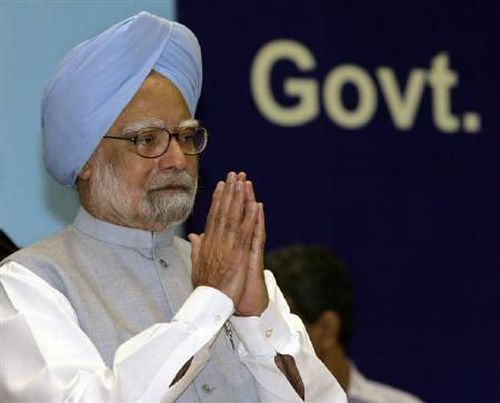
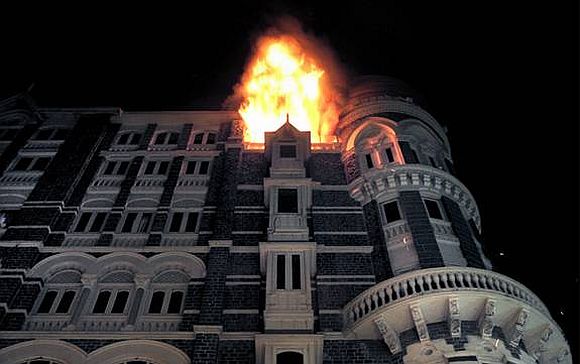
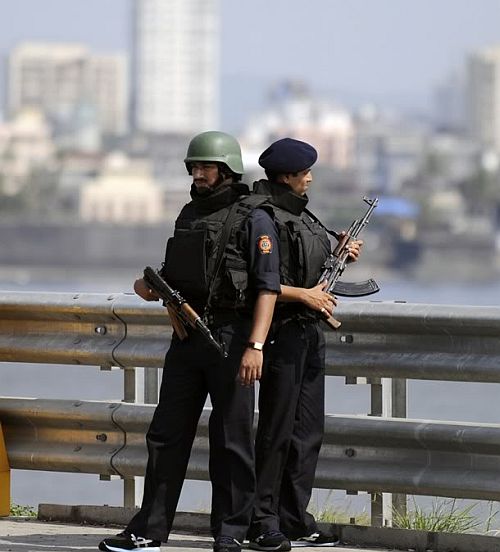
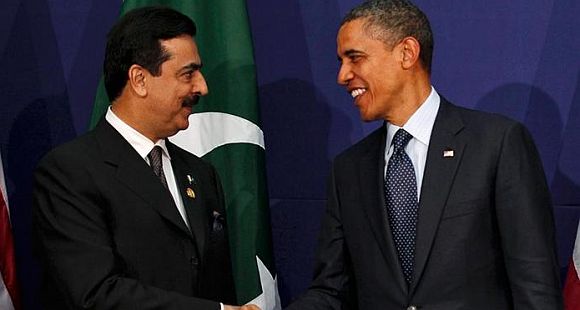
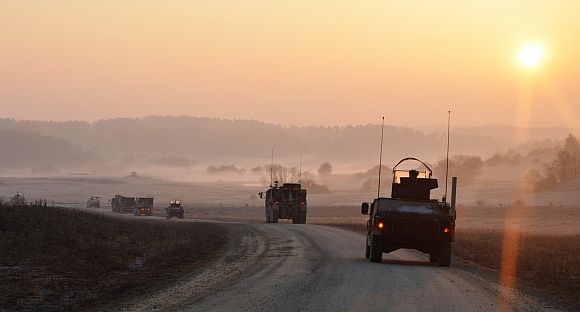

article